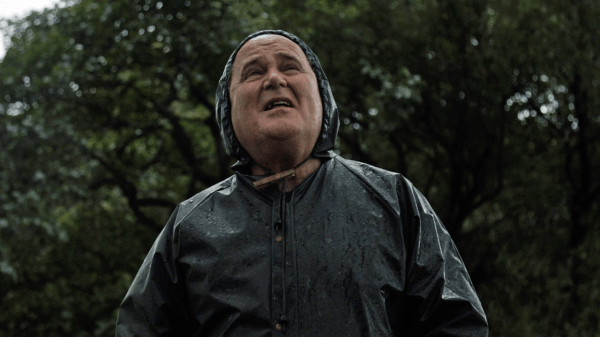
“Heart Valley” illustrates the simplicity of Wilf Davies’s routines. He has no Internet access, gets his news by radio, and eats the same dinner each day.
Last spring, the filmmaker Christian Cargill drove roughly six hours from London to the Teifi valley in western Wales to meet a septuagenarian shepherd living in the remote village of Cellan and explain why he wanted to make a film about him. Cargill found Wilf Davies eating lunch in his van and introduced himself. In the course of forty minutes, Davies listened while Cargill explained how moved he had been by a Guardian article that he’d read about Davies a few weeks earlier, and how much he wanted to create a record of Davies’s way of life. When his pitch was over, Cargill’s forty-minute question got a two-word answer: “Sounds good.”
The resulting film, “Heart Valley,” illustrates the simplicity of Davies’s routines. He was born down the road from what is now his farm, into a family that has worked the land in the area for six generations. He has left the region only a few times in his life, and has left Wales only once, decades ago, to visit a farm in England. He has no Internet access, gets his news by radio, and eats the same dinner each day. Before he bought his van a few years ago, he used his tractor to go anywhere that he couldn’t get to by bus. His time is structured entirely around the needs of his sheep, who, he points out, need constant care from him, even “on Christmas Day.” Cargill told me that some of Davies’s neighbors refer to him as “the man on the mountain.”
The New Yorker Documentary
View the latest or submit your own film.

Cargill visited Davies for a couple of days at a time, filming as many of his tasks around the farm as possible. We see him feeding the flock, putting up a new fence, calling the animals back from the meadows to their paddock, and inspecting their teeth before regretfully sending those who can no longer graze to be slaughtered. Cargill told me that he knew from the beginning of the process what he wanted to film on his final visit. Davies looks forward all day to a walk he takes each evening, still keeping an eye on his sheep from afar, and Cargill wanted to wait to film one of those sunset outings until he and Davies had developed a close relationship. “Everything looks so small,” Davies muses, “you could think you’re in another world.” The final moments of the film show him stopped at the top of the valley watching the light change, having a moment to reflect after a day of labor.
When “Heart Valley” was nearly complete, Cargill drove back to Cellan with a monitor and set it up in Davies’s barn, where he screened the film for Davies and a few others. Davies watched intently, sometimes laughing at himself and sometimes becoming emotional. He seemed less interested in the film as a reflection of his own experiences than as a record of the farming life style that he has seen become increasingly rare. During Davies’s lifetime, it has become harder to maintain small farms, and land around him has been snapped up by newcomers to the valley. “That’s something for people to watch in a hundred years time,” he said to Cargill when the film was over, before getting back to work.
Sourse: newyorker.com